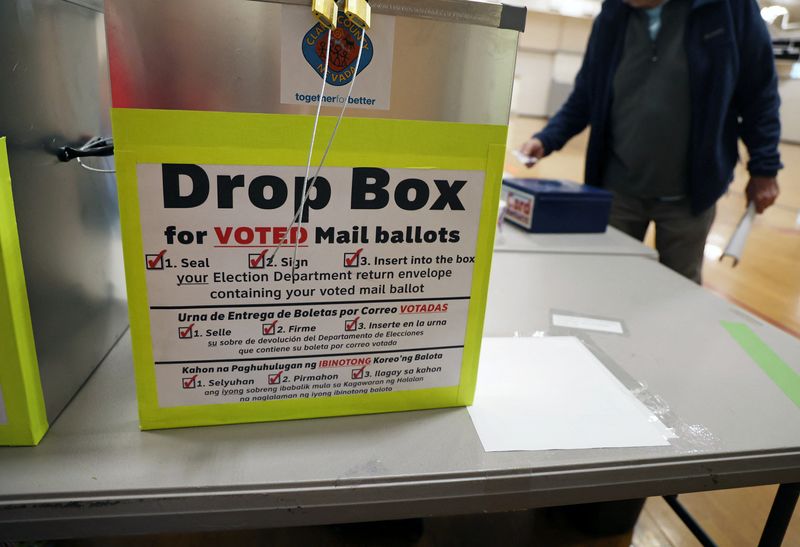Top Nevada court says unpostmarked ballots received after US Election Day can be counted
2024.10.28 17:15
By Jack Queen
(Reuters) – The Nevada Supreme Court on Monday ruled that mail-in ballots received after Election Day without a postmark may be counted, a loss for Republicans in a battleground state that could determine the next president and control of the U.S. Congress.
The seven justices affirmed a lower court ruling against Donald Trump’s presidential campaign and the Republican National Committee, which sued to block a Nevada Secretary of State’s Office policy holding that ballots received by the third day after the election without a postmark must be counted.
“If a voter properly and timely casts their vote by mailing their ballot before or on the day of the election, and through a post office omission the ballot is not postmarked, it would go against public policy to discount that properly cast vote,” the court’s majority said.
The ruling was handed down a week ahead of the Nov. 5 election between Democratic Vice President Kamala Harris and Republican former President Trump. It is the latest courtroom setback for Republicans suing over election rules, though they have notched some recent victories and are appealing rulings against them.
A Republican National Committee representative did not immediately respond to a request for comment on Monday.
The RNC said in its complaint that it would be harmed by the policy because Republicans vote by mail at much lower rates than Democrats.
But the Nevada justices said Republicans offered no evidence of a partisan lean in ballots that were left unpostmarked due to random post office error, or that the 24 unpostmarked ballots the party identified in Clark County during the 2024 primary election had any impact on the race. Clark County, which includes Las Vegas, is the Western state’s most populous county.

In its ruling, the court’s majority also said the secretary of state’s policy aligns with the intent of Nevada’s mail-in ballot laws, which the court said were designed to expand, not limit, access to voting.
The justices unanimously agreed on the result of the ruling, but two of them wrote concurring opinions saying they disagreed with the majority’s interpretations of certain legal questions.








